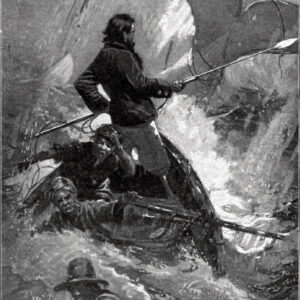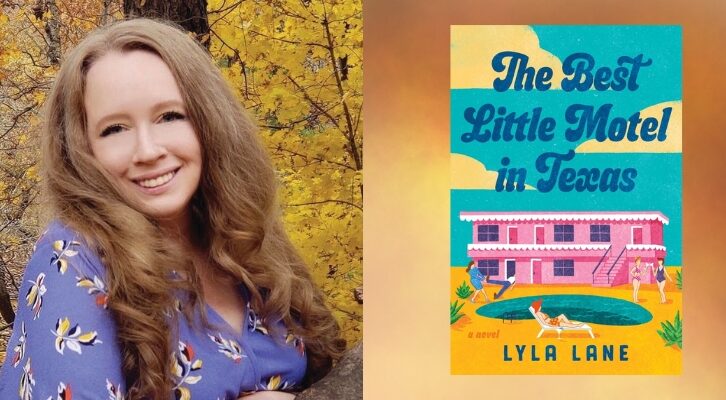
Michael Lewis on Watching Sam Bankman-Fried
This Week on the Talk Easy Podcast with Sam Fragoso
Illustration by Krishna Bala Shenoi.
Talk Easy with Sam Fragoso is a weekly series of intimate conversations with artists, authors, and politicians. It’s a podcast where people sound like people. New episodes air every Sunday, distributed by Pushkin Industries.
*
Upon taking a walk with crypto billionaire Sam Bankman-Fried, writer Michael Lewis had a sense that there might be a story here. In the intervening two years, that story has taken a series of twists and turns, resulting in Lewis’ new book Going Infinite: The Rise and Fall of a New Tycoon.
At the top, we walk through the latest events in Bankman-Fried’s Manhattan trial, the subject at the center of this winding story, and why Lewis was first interested in observing him. Then, he unpacks Bankman-Fried’s belief in effective altruism, his probabilistic approach to trading, and how his Stanford law professor parents shaped his thinking.
On the back-half, we discuss the ten-day period of FTX’s collapse, the scene in the Bahamas as Bankman-Fried filed for bankruptcy, and why Lewis felt a kinship with Sam’s parents in that moment. To close, Michael reflects on his own journalistic tendencies and how he managed to write this book in the aftermath of great personal tragedy.
Subscribe and download the episode, wherever you get your podcasts!
From the episode:
Sam Fragoso: The collapse of FTX took place between November 2nd and November 12th, 2022. At what point in that week did you realize you had a third act for your book, Going Infinite?
Michael Lewis: Immediately. I got down there the day he signed the bankruptcy papers.
SF: Can you set that scene for us?
ML: It was wild. The whole book is wild, the whole story is wild, but this was the Friday of the disastrous week. Virtually all the employees had already fled. They fled so fast that they left all their possessions in their condominiums, all the food on the shelves, all their possessions still at work. They’ve just run to the airport and basically run home to their parents’ basements. I got there, and still there is Natalie Tien. Natalie was an important character in the book. She started out as Sam Bankman-Fried’s scheduler and PR person. She was the one person who knew where Sam was at any given moment. So, she picked me up from the airport in the Bahamas, and at that point, for the first time since I’ve known her, she had no idea where Sam was. She didn’t care anymore. The whole place had blown up.
I talked her into going to the FTX offices, this collection of huts in the jungle. In the distance is Sam walking circles around the office buildings all by himself. He’s obviously not bathed or shaved in days. He’s in an agitated state of mind. He sees us, walks over, gets in the car like we’re an Uber— and the first thing he says is, “You know what’s weird to think about? Saturday. On Saturday, everything was normal.” He was talking about six days earlier. And now, his empire lay in ruins.
SF: When you saw Sam in the parking lot, you said on 60 Minutes that, “if I were a better person, I would have been deeply distressed by all this.” What do you mean by that: a better person?
ML: If I was chiefly worried about his suffering, or the suffering of those around him, I would have gone there in my head. It would have been like, “oh, this is all so sad.” This is just how I’m wired. I was interested, and I was also aware that this answered the question of where the story went. It made sense of an awful lot of what had come before. So, my mind was racing with the story. I didn’t feel chiefly worried about the people around me; I felt chiefly worried about my reader. There was a famous Joan Didion line, it’s apocryphal. Someone asked her how she felt when she walked in a room and she saw a five-year-old girl with cocaine in her hands.
SF: It was acid, Haight-Ashberry. Do you know what she said?
ML: You tell me.
SF: It was gold.
ML: It was gold. When I’m wandering around the world thinking about how to write about something, I am filtering it that way. I’m thinking, What’s the meaning of this? What’s the story of this? I’m not thinking I am responsible for it. I’m an observer. So, I didn’t feel responsible for Sam. I was aware of how much damage he had caused in other people’s lives, so if anything I was massively irritated with Sam for that, if I thought about it. But mainly I was watching to see how it would play out.
__________________
Michael Lewisis the best-selling author of Liar’s Poker, Moneyball, The Blind Side, The Big Short, The Undoing Project, and The Fifth Risk. He lives in Berkeley, California, with his family.
Sam Fragoso is the host of Talk Easy with Sam Fragoso, a weekly series of conversations with artists, activists, and politicians. His writing has appeared in The Atlantic, Vanity Fair, and NPR. After conducting seminal interviews with icons like Spike Lee, Werner Herzog, and Noam Chomsky, he independently founded Talk Easy in 2016.
Talk Easy
Talk Easy with Sam Fragoso is a weekly series of intimate conversations with artists, authors, and politicians. It’s a podcast where people sound like people. New episodes air every Sunday, distributed by Pushkin Industries.



















